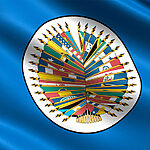2022 FICSA Legal Standing Committee Session
In April 2022, Modulaw was invited to attend the 75th Council of the Federation of International Civil Servants Associations (FICSA) which was held in Vienna, Austria. Here is our overview of the key issues that we discussed in the Legal Standing Committee sessions. For more information, check out FICSA’s 2022 Magazine.
Jurisdictional set up of the UN Common System
In or around 2016, the International Civil Service Commission (ICSC) made recommendations to organizations in the UN Common System (UNCS) about post adjustment results in Geneva. These recommendations were not implemented uniformly by the different UNCS organizations, which resulted in a number of cases being brought before the Administrative Tribunal of the International Labour Organization (ILOAT) and the United Nations Appeals Tribunal (UNAT). Unfortunately, the two tribunals made conflicting rulings, which prompted concern in the General Assembly that organizations in the UNCS face two independent administrative tribunals with concurrent jurisdiction that are producing different results.[1]
In January 2021, as requested by the General Assembly, the Secretary-General released a report titled, Initial review of the jurisdictional set-up of the UNCS. This preliminary report provides potential avenues to address the inconsistent implementation of ICSC decisions, such as:
- Measures that would not require any changes to the structure of the Tribunals, but rather focus on providing more powers to the ICSC itself. For example, making it general practice that tribunal judgments addressing ICSC matters would be automatically communicated to the ICSC secretariat, who would in turn consult with organizations before making any recommendations that apply to the UNCS.
- Measures involving universal changes to both Tribunals. Options included harmonizing the ILOAT and UNAT statutes; abolishing the ILOAT and UNAT and creating a new, single administrative tribunal; or alternatively, creating a new appellate mechanism.
- Measures involving major changes to the adjudication of cases involving ICSC matters. For example, establishing a joint chamber composed of ILOAT and UNAT judges which would be exclusively responsible for reviewing ICSC matters only. This chamber could then issue:
- interpretative rulings, which would review the legality of ICSC decisions and recommendations before they are adopted;
- preliminary rulings to provide authoritative guidance in the adjudication of a contentious case; or
- appellate rulings which would review divergent judgments of ILOAT and the UNAT on the implementation of ICSC decisions.
The report highlights the need for ongoing and detailed consultation on possible solutions. During the FICSA Council discussion, it was highlighted that the proposals in the report were too general, and that two significant points remained unclear: first, the implications of each proposal on staff members; and second, how these proposals would achieve consistency in the implementation of ICSC decisions and recommendations.
It was also noted that from a practical perspective, this decision will be driven primarily by political factors that are beyond the scope of work of FICSA and the Staff Associations it represents.
The FICSA Legal Standing Committee has instructed Staff Associations to discuss this topic with their respective administrations in order to ensure that their concerns are voiced and factored into the next steps arising from the consultation process.
Protection of elected staff representatives
The most problematic topic of discussion in the Legal Standing Committee was that of staff representatives who are facing retaliation, bullying and/or harassment in the conduct of their duties. This is highly concerning: international organizations have a positive duty to safeguard freedom of association and to ensure that staff representatives are protected from any unwarranted interference when performing their responsibilities.
This is a fundamental principle embodied in in the Standards of Conduct for the International Civil Service[2] as well as judicial precedent.[3] Despite this, there are a number of evidentiary challenges in bringing such claims before a tribunal.
For example, the ILOAT recently made clear that discrimination on the basis of being an elected staff representative must be proven separately. In this case, the Tribunal found that the complainant had established that a decision to not promote him breached the principle of equal treatment. However, the Tribunal rejected the complainant’s contention that the decision not to promote him was a hidden disciplinary sanction against him because he was a staff representative, finding that the complainant provided no evidence “to prove a nexus between the non-promotion decision and this allegation […] that the decision was retaliatory or was actuated by prejudice”.[4]
During the session, it was noted that the combination of a growing number of incidents against staff representatives and the difficulties with getting accountability has the effect of driving away young professionals from staff representation activities and undermining their trust in the system. This in turn prevents genuine generational turnover of staff representatives.
The discussion resulted in FICSA adopting a resolution which emphasizes that any interference by an administration with a staff representative constitutes a violation of the basic principle of the right of representation and freedom of association. It calls on the administration to ensure that staff representatives are not deprived of career development opportunities and promotion as a result of performing their often difficult duties. We consider this resolution represents an important first step in calling out unacceptable behaviour and hope to hear more improved reports at the next FICSA Council.
[1] See UN General Assembly Resolution 74/255, Section B, para 8.
[2] Standards of Conduct for the International Civil Service, paras. 31-32.
[3] See UNAT Judgment No. 15/1945 which ruled that staff representation is an indispensable element of the right of association, and therefore that “no action should be taken against a member of the staff on the ground that he is or has been an officer or representative of the Staff Association or otherwise has been active in the Association”.
[4] ILOAT Judgment No. 4391, consideration 13.










